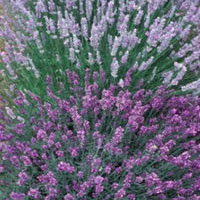health guides
Lavender
 © Steven Foster
© Steven FosterHow It Works
The volatile oil (also called essential oil) of lavender contains many constituents, including perillyl alcohol and linalool. The oil is thought to be calming2 and thus can be helpful in some cases of insomnia. One study of elderly people with sleeping troubles found that inhaling lavender oil was as effective as some commonly prescribed sleep medications.3 Similar results were seen in another trial that included young and middle-aged people with insomnia.4 A large clinical trial found that lavender oil added to a bath was no more effective than a placebo for relieving perineal discomfort immediately after childbirth.5 However, perineal pain was reduced three to five days afterward. Lavender is recommended by the German Commission E monograph for indigestion and nervous intestinal discomfort.6
How to Use It
The German Commission E monograph suggests 1–2 teaspoons (5–10 grams) of the herb be taken as a tea.7 The tea can be made by steeping 2 teaspoons (10 grams) of leaves in 1 cup (250 ml) of boiling water for fifteen minutes. Three portions (750 ml) can be consumed each day. For internal applications, 1/2–3/4 teaspoon (2–4 ml) of tincture can be taken two or three times per day. A few drops of the oil can be added to a bath or diluted in vegetable oil for topical applications. The concentrated oil is not for internal use, except under medical supervision.
Copyright © 2024 TraceGains, Inc. All rights reserved.
Learn more about TraceGains, the company.
The information presented by TraceGains is for informational purposes only. It is based on scientific studies (human, animal, or in vitro), clinical experience, or traditional usage as cited in each article. The results reported may not necessarily occur in all individuals. Self-treatment is not recommended for life-threatening conditions that require medical treatment under a doctor's care. For many of the conditions discussed, treatment with prescription or over the counter medication is also available. Consult your doctor, practitioner, and/or pharmacist for any health problem and before using any supplements or before making any changes in prescribed medications. Information expires December 2024.


 We are proud to announce that
We are proud to announce that  As the market evolves, customers increasingly request a wider variety of omega-3 options for their lipid...
As the market evolves, customers increasingly request a wider variety of omega-3 options for their lipid...  Maintaining healthy glucose levels is crucial for preventing metabolic conditions like diabetes,...
Maintaining healthy glucose levels is crucial for preventing metabolic conditions like diabetes,...  Looking at formulating a new vitamin blend? Discover
Looking at formulating a new vitamin blend? Discover 







































